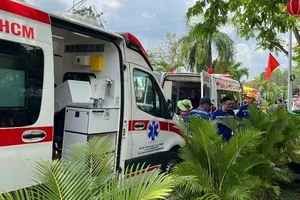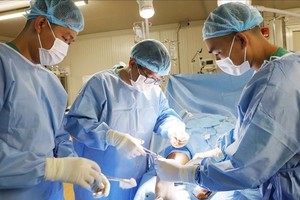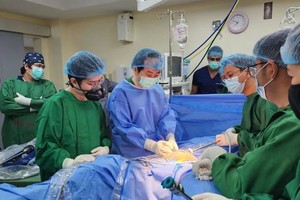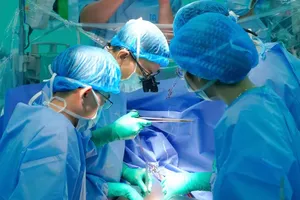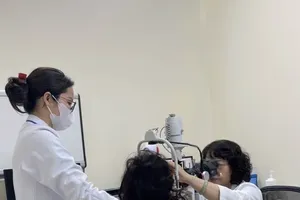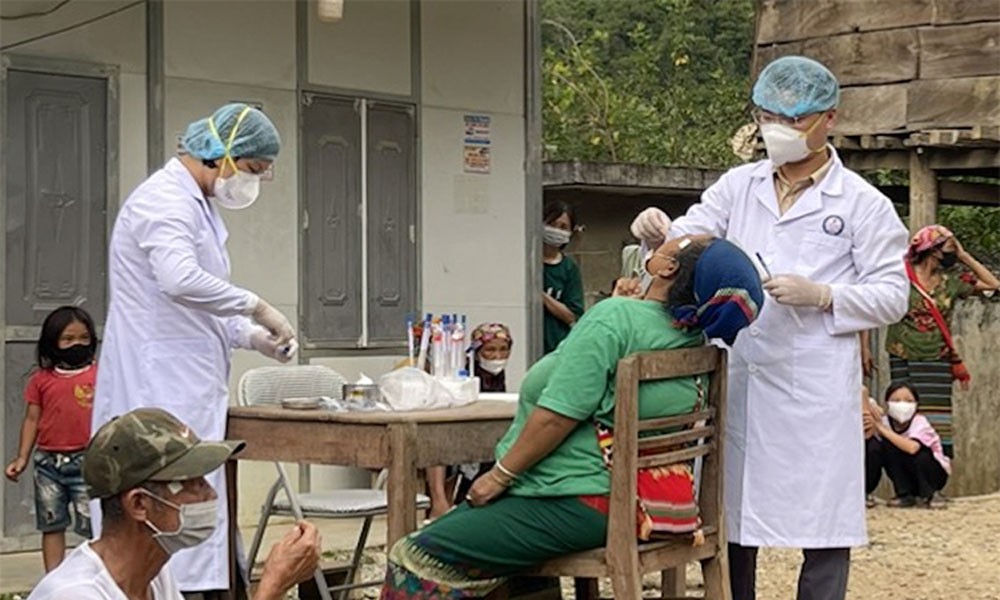
Under the Ministry’s requirement, when small infirmaries suspect a person to be infected with diphtheria, they should seek consultation with large medical facilities to prioritize early use of diphtheria antitoxin and select antibiotics for treatment.
In response to the complicated development of diphtheria in Nghe An and Bac Giang provinces, with one death recorded in Nghe An Province, the Department of Medical Examination and Treatment under the Ministry of Health today sent an official dispatch to the health departments of the two localities to strengthen the diagnosis and treatment of diphtheria.
The Department of Medical Examination and Treatment has requested the Departments of Health of Nghe An and Bac Giang provinces and relevant units to urgently retrain all medical staff involved in examination and treatment on the Guidelines for Diagnosis and Treatment of Diphtheria for early detection of suspected cases so that hospitals including private medical facilities in the area can isolate them soon and provide early treatment.
In particular, for clinical cases suspected of diphtheria, consultation with higher-level facilities is required to prioritize the early use of diphtheria antitoxin and the selection of antibiotics according to the Guidelines for Diagnosis and Treatment of Diphtheria; at the same time, medical workers should take samples to detect bacteria early for treatment orientation.
The Departments of Health of Nghe An and Bac Giang provinces need to direct their relevant subordinate units to prepare isolation areas, isolation wards, medicines, medical equipment, supplies, personal protective equipment, and disinfectants for emergency care and treatment.
Moreover, they should comply with standard precautionary measures and transmission-based precautions for medical staff during examination and treatment, such as using masks, hand hygiene, and environmental hygiene.
The Department of Medical Examination and Treatment also noted that the health sectors of the two localities should direct relevant units to give antibiotics to patients’ close contacts according to the guidelines. Last but not least, the local health sector should increase communication in hospitals so that patients and their families know the signs of the disease so that they can go to the doctor early and understand preventive measures.
